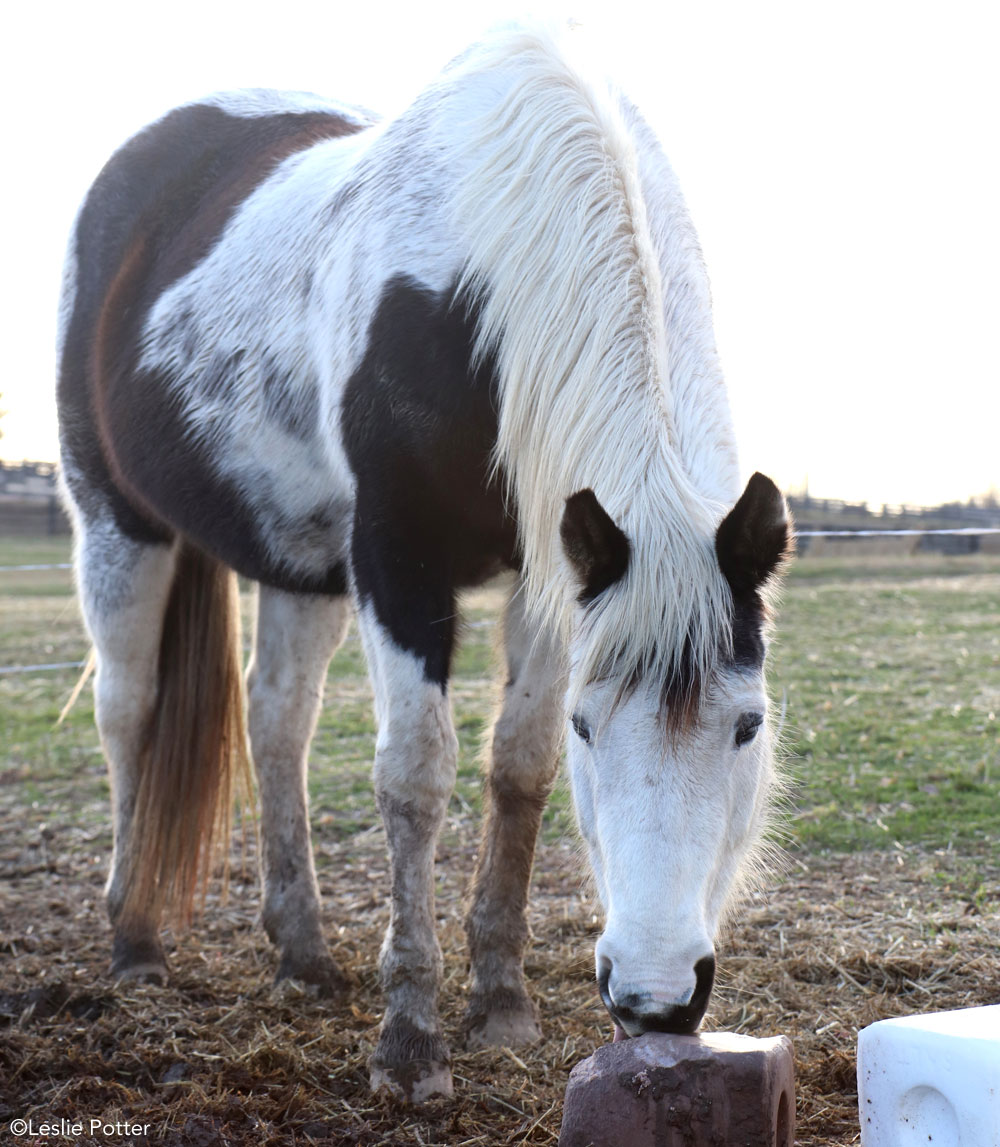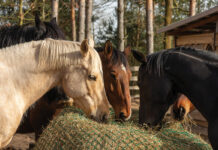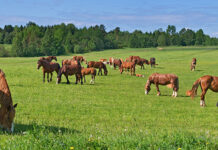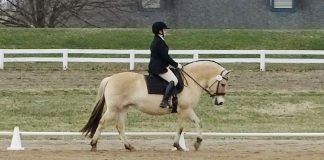
A full-sized horse does best on a diet that offers 1 to 6 mg of iodine each day to keep his thyroid gland working properly. Because the iodine content of grass is too low to measure, it is best to rely on supplementation — from salt or other sources — to meet your horse’s need. Many supplements and fortified feeds already add it. It’s always best to know what your horse is consuming since too much iodine can damage the thyroid gland.
White and brown salt blocks generally do not contain iodine, whereas blue and red ones do. Sea salt, kelp, and other natural salt sources can vary tremendously in their iodine content. Only use reputable sources that guarantee their iodine analysis in writing.
Looking for more advice on optimal nutrition for your horse? For more than 20 years, Dr. Juliet Getty has taught and consulted on equine nutrition. Her comprehensive book, Feed Your Horse Like A Horse: Optimizing your horse’s nutrition for a lifetime of vibrant health, is available in hardcover and CD through her website or at Amazon.com. At www.gettyequinenutrition.com horse owners and managers will find a library of helpful articles, the “Ask the Nutritionist” forum, and a calendar of appearances, teleconferences and interviews; register at the website for Dr. Getty’s popular (and free) monthly e-newsletter, “Forage for Thought.”






HMMM, THAT’S INTERESTING. DIDNT KNOW THAT. THANKS.
I don’t know if there is iodine in my horse’s salt block. I suppose I should look into that.
Great article- will definitely check next time I’m buying a block.
My horses love there salt we buy the white kind of blocks there block is going down to miny size? i should get more.